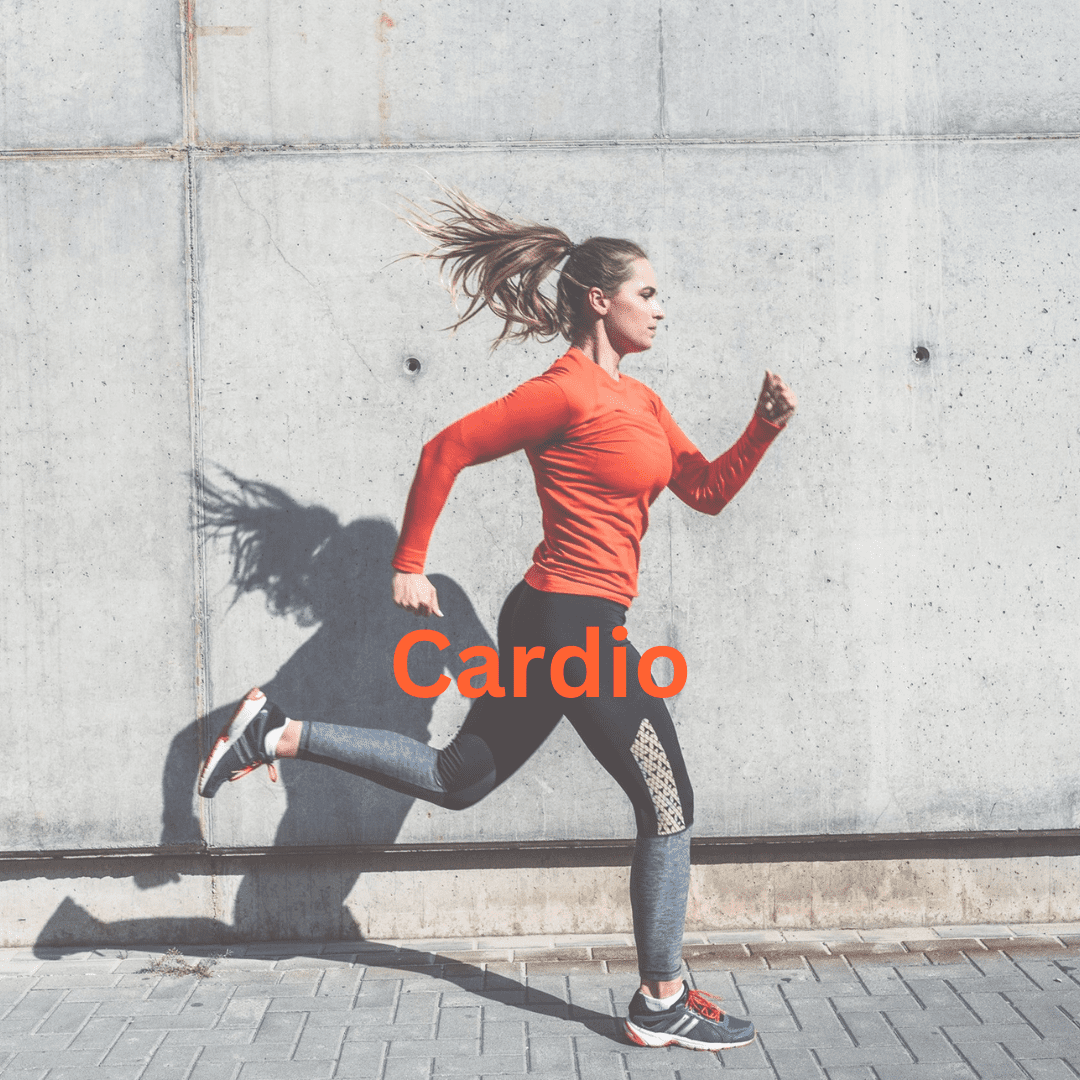
About Supplements like Protein and Creatine
When it comes to fitness and exercise, many people turn to supplements to help improve their performance and recovery. Generally-speaking, try to get all your nutrients and needs through whole, unprocessed (or minimally processed) foods. It’s also important to realize there are a lot of supplements out there that either don’t work, or in other cases, have safety concerns. So be aware of those things.
Three popular supplements that are often used by athletes and fitness enthusiasts are protein, creatine, and electrolytes. They are proven to help with improved body composition. Let’s take a closer look at each one:
Protein:
Protein powder has become a popular supplement for individuals looking to build muscle or increase their protein intake. This provides a convenient and cost-effective source of high-quality protein that can help support muscle growth and recovery. However, with so many different types of protein powder available on the market, it can be challenging to determine which one is the best for your needs.
When it comes to protein powder, whey and casein are two of the most popular options. Both are high-quality proteins that have a complete amino acid profile, which means they contain all the essential amino acids that your body needs but cannot produce on its own.
Comparing Whey to Casein Protein for Muscle Growth and Recovery
The body quickly absorbs whey protein, a faster digesting protein than casein, and it can stimulate muscle protein synthesis. For this reason, whey protein is generally recommended, especially whey isolate, which has a higher protein content and is lower in lactose and fat.
On the other hand, casein protein provides a sustained release of amino acids into the bloodstream as it is a slower digesting protein. This makes it an excellent option for people who want to maximize muscle protein synthesis over a more extended period, such as before bed.
When and How Much Protein to Take
If you’ve already had a pre-workout meal with sufficient protein, ingesting protein immediately post-workout doesn’t seem to be very important. A post-workout shake is still convenient for spreading out protein intake throughout the day, but it’s not urgent. However, if you haven’t eaten any protein prior to your workout, ingesting your shake shortly before your workout is likely the best option to maximize protein synthesis.
Ingesting at least 40 grams of slow-digesting protein like casein before bed can help improve overnight muscle protein synthesis and recovery. Protein synthesis peaks during sleep–providing your body with the necessary nutrients can help support this process.
It’s essential to note that 20-25 grams of high-quality protein like whey is sufficient for maximizing muscle protein synthesis, but taking more may provide a small additional benefit. How often to take protein ultimately depends on individual needs and goals. Some people may benefit from consuming protein powder after every workout, while others may only need it once a day.
Protein powder can be an excellent way to support muscle growth and recovery, but it’s important to choose the right type of protein for your needs. Whey and casein are two of the best options, and the timing of when you consume your protein shake can also impact its effectiveness. By incorporating protein powder into your diet and exercise routine, you can help support your fitness goals and overall health.
Creatine:
you may have heard of creatine as a supplement used by athletes to improve their athletic performance and build muscle. But do you know what creatine actually is and how it works?
Creatine is a molecule that is naturally produced by mammals, including humans, from the amino acids glycine, methionine, and arginine. It supports energy production and enhances athletic performance by primarily synthesizing in the liver and storing in muscle cells.
On average, the human body naturally stores about 120 grams of creatine, with 90 to 95% of it located within muscle cells. This is important because creatine enhances energy production by serving as the phosphate donor for the replenishment of ATP, which provides a buffer against muscle fatigue.
Where can you get creatine?
Creatine can be obtained from food, such as red meat and fish, or supplements. However, vegetarians and vegans may have lower levels of creatine in their bodies due to their diet.
Performance of Creatine and Side Effects
Short-term creatine supplementation increases lifting performance, maximal power, strength, muscle contractions, and sprinting performance. In fact, some of these stats can increase by 5 to 15% with creatine supplementation (Journal of Sports Nutrition, 2012). This is why 45 to 75% of athletes, such as power lifters, boxers, and weight-lifters, use it (Sports Health, 2018).
In addition, creatine supplementation can lead to water retention within muscle cells. This can give muscles a fuller look, assist with muscle growth, and increase anabolic signaling leading to a more favorable protein turnover rate.
While creatine is generally safe, it is important to note some possible side effects. These include gastrointestinal distress, muscle cramps, and dehydration. It is important to stay adequately hydrated when supplementing with creatine.
Note that creatine can result in a slight increase in water weight in the muscles, but it is very minimal. If anything, this is beneficial because the weight is in the right places where you may be trying to become more toned.
Long-term effects unknown for creatine
Finally, it is important to be aware of the potential long-term effects of creatine supplementation. While current research suggests that it is safe for most people, the long-term effects are not yet fully understood. Therefore, if you have kidney or liver disease, it is best to avoid creatine supplementation.
Creatine is a molecule produced naturally by mammals that can enhance energy production and athletic performance. While it is generally safe for most people, it is important to be aware of possible side effects. Also, avoid it if you have kidney or liver disease.
Electrolytes:
We often hear about the importance of electrolytes in sports drinks and other health products, but what exactly are they? In simple terms, electrolytes are salts that dissolve into positive and negative charges and conduct electricity in water. This may sound like a lot of technical jargon, but understanding electrolytes is actually quite straightforward and can have a big impact on our health.
Note that electrolyte needs increase when people decide to do intermittent fasting, like 16/8 or 18/6. Make sure to take enough water, if you take an electrolyte supplement to process the micronutrients well.
One of the key roles of electrolytes is to control the flow of water in our cells and nerve impulses in our bodies. Without the proper balance of electrolytes and water, our cells could become dehydrated and damaged, leading to serious health problems. Electrolytes also play a crucial role in regulating our body temperature, which is why we may sweat more and feel thirsty when we exercise or spend time in hot environments.
What happens to electrolytes when you sweat
When we sweat, our bodies lose electrolytes along with water. This is why sweat tastes salty – the electrolytes that are lost during sweating are left behind. However, our bodies are designed to replenish these lost electrolytes through our diet, so there is no need to worry. Foods like fruits, vegetables, and dairy products are all good sources of electrolytes. So, it’s usually unnecessary to rely on sports drinks or supplements to replenish them. However, for athletes or people doing intense workouts that last over an hour, sports drinks can be helpful for replacing lost fluids and electrolytes.
One way that electrolytes affect our bodies is through ion channels in cell membranes. These channels regulate the flow of positive and negative charges through cells, which in turn affects the movement of water. When a positive ion moves through an ion channel in a nerve cell, it triggers an electrical impulse that signals our bodies to function properly. This process happens constantly throughout our bodies, ensuring that our hearts beat, our lungs breathe, and our brains learn.
Electrolytes are important
Electrolytes are essential for our bodies to function properly. They control the flow of water in our cells and nerve impulses in our bodies. Electrolytes are also necessary for regulating body temperature and other vital processes. While sports drinks and supplements can be helpful for athletes and people doing intense workouts, most people can get enough electrolytes from their diet. So next time you hear about electrolytes, you’ll know that they’re not just a buzzword – they’re an important part of our health and wellbeing.
It’s important to remember that athletes and fitness enthusiasts should not rely on protein, creatine, and electrolyte supplements as a substitute for a healthy and balanced diet, even though they can provide benefits.
References:
Cooper R, Naclerio F, Allgrove J, Jimenez A. Creatine supplementation with specific view to exercise/sports performance: an update. J Int Soc Sports Nutr. 2012 Jul 20;9(1):33. doi: 10.1186/1550-2783-9-33. PMID: 22817979; PMCID: PMC3407788. https://www.ncbi.nlm.nih.gov/pmc/articles/PMC3407788/
Butts J, Jacobs B, Silvis M. Creatine Use in Sports. Sports Health. 2018 Jan/Feb;10(1):31-34. doi: 10.1177/1941738117737248. Epub 2017 Oct 23. PMID: 29059531; PMCID: PMC5753968. https://www.ncbi.nlm.nih.gov/pmc/articles/PMC5753968/









